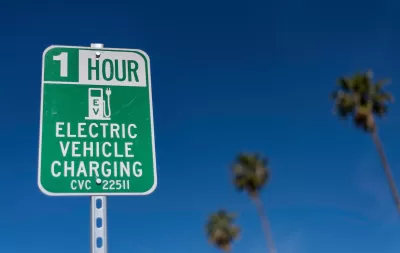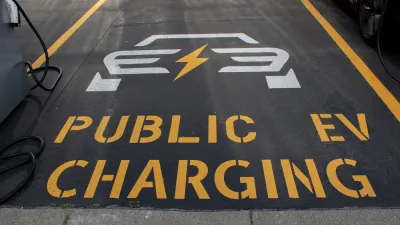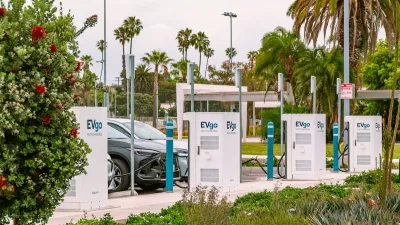Funded through the Bipartisan Infrastructure Law, the Electric Vehicle Charger Reliability and Accessibility grant program will help advance the Biden Administration’s goal to have 500,000 public EV chargers in operation by 2030.

According to an article from Electrek, the U.S. Joint Office of Energy and Transportation has launched a $150 million grant program to repair and upgrade 4,500 existing, publicly accessible electric vehicle charging ports across the country. The effort, called the Electric Vehicle Charger Reliability and Accessibility program, is funded through the Bipartisan Infrastructure Law and is part of the Biden Administration’s goal to have 500,000 public EV chargers in the ground and operating by 2030 and, article author Michelle Lewis reports, “at a time when, according to the US Department of Energy’s Alternative Fuels Data Center, approximately 5% of public charging ports are temporarily unavailable.”
The Joint Office broke ground on the first project funded under the EVC-RAA grant program in late August; the inoperable charging station in Washington, D.C. will be upgraded to charge four vehicles simultaneously at speeds of 150 kW, up from its previous capacity of 50 kW. “Located near a convenience store, a riverfront park, trails, and a Capital Bikeshare station, the station is well-positioned to serve both residents and visitors,” Lewis writes.
In addition to ensuring Americans have access to convenient, safe, and dependable EV charging infrastructure, the federal government’s push to build out EV charging infrastructure is a key component of its strategy to meet national climate goals under the Paris Agreement. Earlier this year, the White House announced $623 million in grants to build new public EV charging infrastructure.
FULL STORY: The US govt is fixing and upgrading 4,500 EV charging ports

Alabama: Trump Terminates Settlements for Black Communities Harmed By Raw Sewage
Trump deemed the landmark civil rights agreement “illegal DEI and environmental justice policy.”

Planetizen Federal Action Tracker
A weekly monitor of how Trump’s orders and actions are impacting planners and planning in America.

The 120 Year Old Tiny Home Villages That Sheltered San Francisco’s Earthquake Refugees
More than a century ago, San Francisco mobilized to house thousands of residents displaced by the 1906 earthquake. Could their strategy offer a model for the present?

LA’s Tree Emergency Goes Beyond Vandalism
After a vandal destroyed dozens of downtown LA trees, Mayor Karen Bass vowed to replace them. Days later, she slashed the city’s tree budget.

Sacramento Leads Nation With Bus-Mounted Bike Lane Enforcement Cameras
The city is the first to use its bus-mounted traffic enforcement system to cite drivers who park or drive in bike lanes.

Seattle Voters Approve Social Housing Referendum
Voters approved a corporate tax to fund the city’s housing authority despite an opposition campaign funded by Amazon and Microsoft.
Urban Design for Planners 1: Software Tools
This six-course series explores essential urban design concepts using open source software and equips planners with the tools they need to participate fully in the urban design process.
Planning for Universal Design
Learn the tools for implementing Universal Design in planning regulations.
Ada County Highway District
Clanton & Associates, Inc.
Jessamine County Fiscal Court
Institute for Housing and Urban Development Studies (IHS)
City of Grandview
Harvard GSD Executive Education
Toledo-Lucas County Plan Commissions
Salt Lake City
NYU Wagner Graduate School of Public Service





























